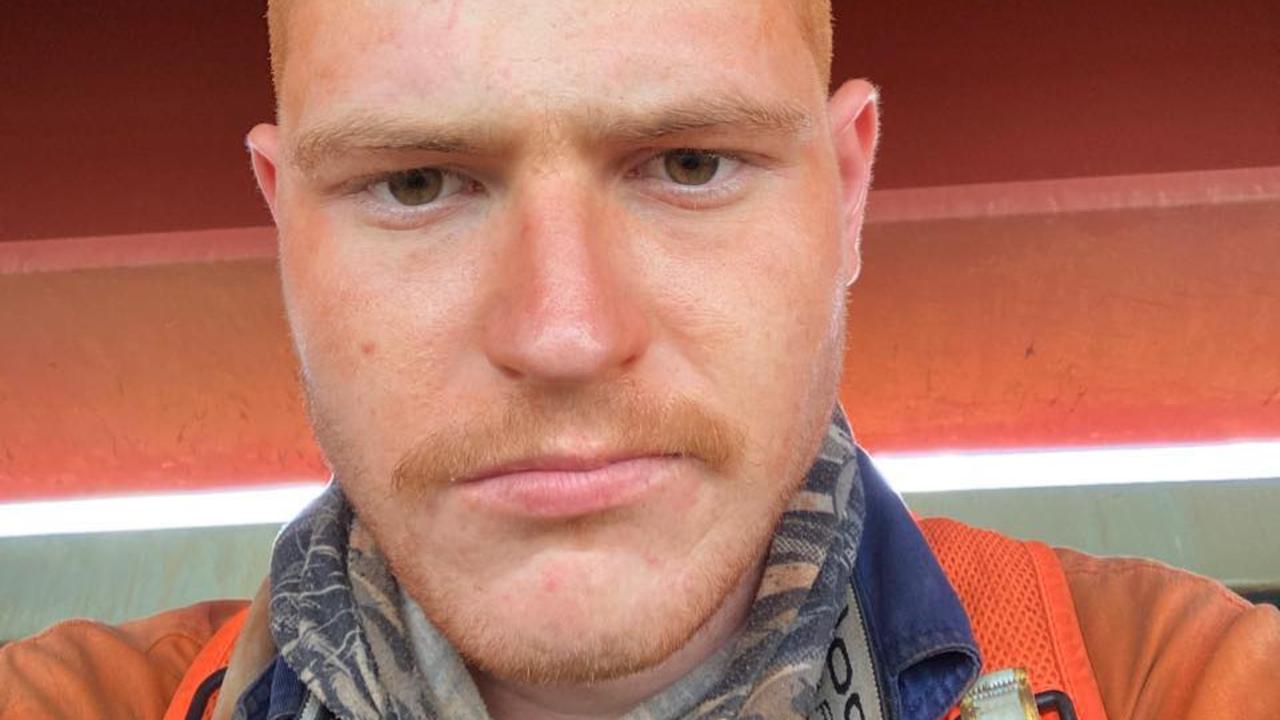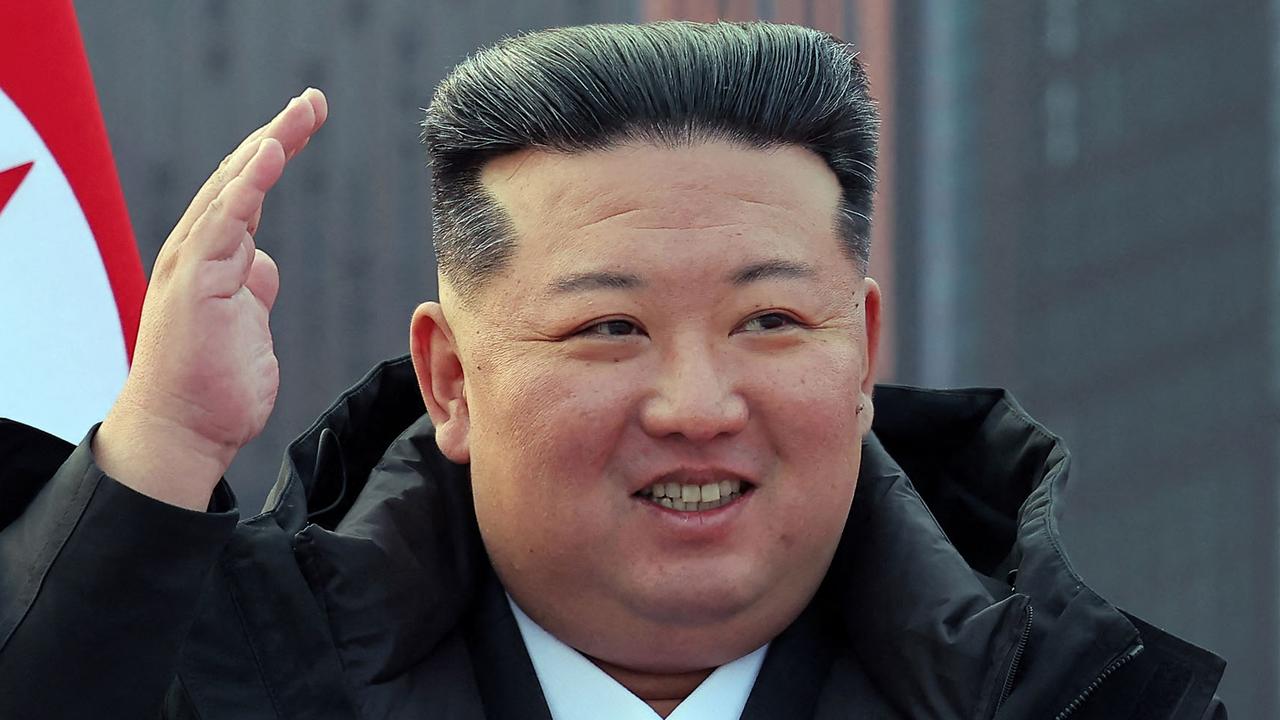Russian President Vladimir Putin’s bloody revenge after Wagner boss Yevgeny Prigozhin's shock coup
On June 23, Wagner boss Yevgeny Prigozhin ordered his troops to march on Moscow. From that moment, he was a “dead man walking”.
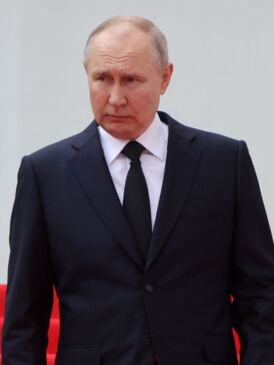
On June 23, Wagner chief Yevgeny Prigozhin ordered his convict mercenaries to march on Moscow. From that moment, he was doomed.
CIA Director Bill Burns turned his hand to prophecy last month: “Putin is someone who generally thinks that revenge is a dish best served cold … in my experience, Putin is the ultimate apostle of payback, so I would be surprised if Prigozhin escapes further retribution for this.”
Russia’s Federal Air Transport Agency has confirmed that an Embraer Legacy 600 business jet, with Prigozhin and other Wagner officials on its flight passenger manifest, has crashed in the Tver district northwest of Moscow. There were no survivors among the two crew and seven passengers.
No details relating to the crash have been released.
A Wagner-linked Telegram account claims the jet was shot down.
“The head of the Wagner Group, Hero of Russia, a true patriot of his Motherland, Yevgeny Viktorovich Prigozhin, died as a result of the actions of traitors to Russia,” the Grey Zone channel announced.
“But even in hell, he will be the best! Glory to Russia!”
Wagner channel Grey Zone confirms Prigozhin's death.
— Jimmy Rushton (@JimmySecUK) August 23, 2023
"The head of the Wagner Group, Hero of Russia, a true patriot of his Motherland, Yevgeny Viktorovich Prigozhin, died as a result of the actions of traitors to Russia.
But even in hell he will be the best! Glory to Russia!" pic.twitter.com/xq88Fdcm4y
But widely-circulated footage of a plummeting aircraft is of one destroyed by Wagner troops during the revolt.
Putin’s opponents have a tendency to turn up dead, whether by poison, cups of radioactive tea, tripping down stairs, falling out of windows or apparent suicide.
Blowing up a business jet would depart from the usual modus operandi.
And Prigozhin isn’t yet officially confirmed as being among the dead.
But the convicted thief and fraudster who became Putin’s caterer and then a mobster-entrepreneur was widely regarded as a “dead man walking”.
He had declared the “Special Operation” against Ukraine a mistake.
He dismissed Putin’s claims of “de-nazifying” and “de-NATOing” Ukraine as “fake”.
He insisted it was all a power game initiated by Defence Minister Sergei Shoigu and his clique of corrupt oligarchs.
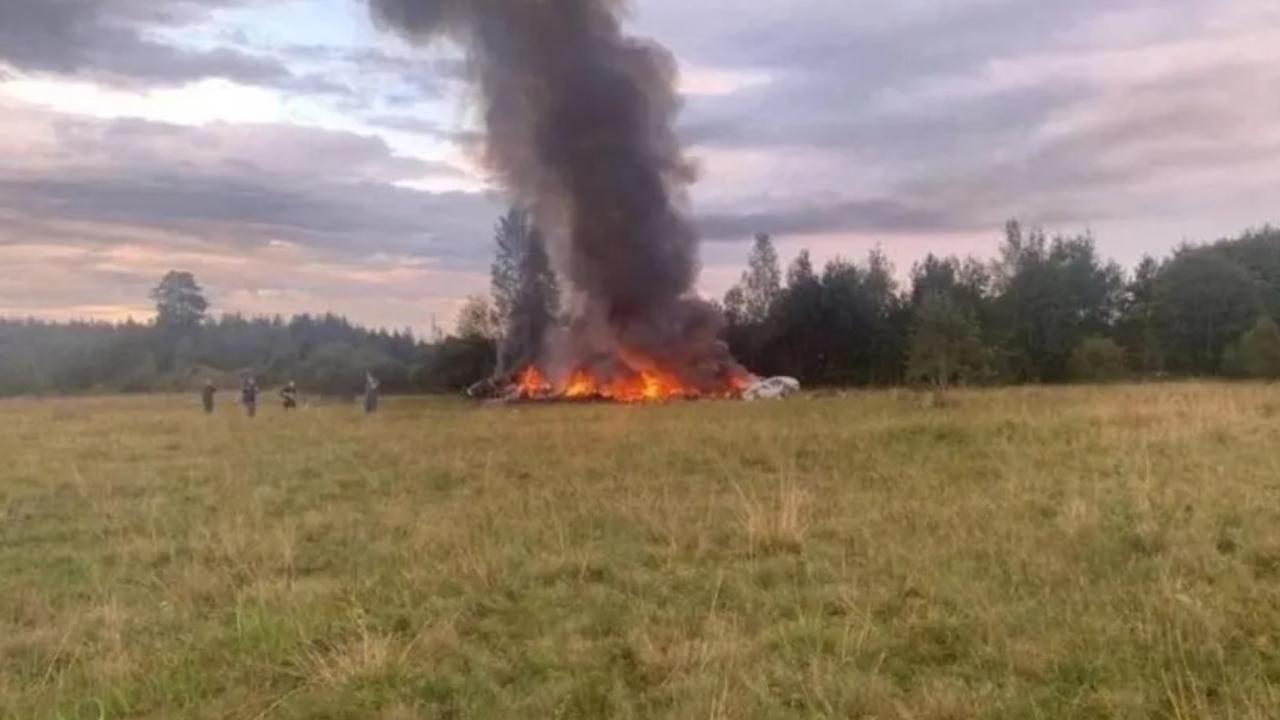
“Our holy war has turned into a racket,” Prigozhin proclaimed.
Putin was not amused.
The embattled president took to television to label Prigozhin a “traitor”. He ordered his secret police to arrest him.
Just 24 hours later, it was all over.
Putin and Prigozhin were apparently pals again – thanks to a “deal” brokered by Belarusian dictator Lukashenko.
Nobody but Prigozhin believed it.
Winds of winter
“In his eruption, Prigozhin malfunctioned, frightening Putin but not significantly shaking his hold on power,” Carnegie Institute senior fellow Andrei Kolesnikov said.
Other international affairs analysts disagree.
“By completely underestimating Prigozhin's radicalisation and Wagner’s escalating conflict with the military, Putin has come across as an ageing leader who is beginning to falter in ways he would never have before,” Carnegie senior fellow Tatiana Stanovaya argued.
Prigozhin exploded in Putin’s face in a way his failed invasion of Ukraine has not.
“Putin appears less powerful after conspicuously dropping charges against Prigozhin, not demanding justice for the killings of pilots during the mutiny, and allowing enormous budget expenditures to go to a private military company that eventually dares to attack the state.”
And that, she added, indicated the regime was much less stable than it appears.
Even Dmytriy Utkin's name appears in that crashed plane.
— (((Tendar))) (@Tendar) August 23, 2023
If both, Prigozhin and Utkin, are dead then we can call this a clear decapitation strike of Wagner.#Russiapic.twitter.com/PSGu6mciYa
“A frazzled Kremlin; a detached Putin who is failing to deal with internal conflicts; a frustrated society that is perplexed by the state’s lethargic reaction to previously unimaginable events; trembling elites ready to fly away the second the regime crumbles …”
Killing Prigozhin may be how Putin hoped to stabilise the situation – and de-fang the ex-convict mercenaries of Wagner.
Several other Wagner executives were also listed on the business jet’s flight manifest. These include former special forces operative and intelligence agent Dmytriy Utkin and security chief Valery Chekalov.
“If both Prigozhin and Utkin are now dead, there are also implications for ongoing Wagner operations on the African continent – in Mali, Central African Republic, Syria and Libya,” international relations expert Dr Jessica Genauer of Flinders University said.
“These are lucrative operations that channel significant funds back to the Russian state. Installing new leadership for these operations may undermine existing relationships with local actors, and compromise these activities.
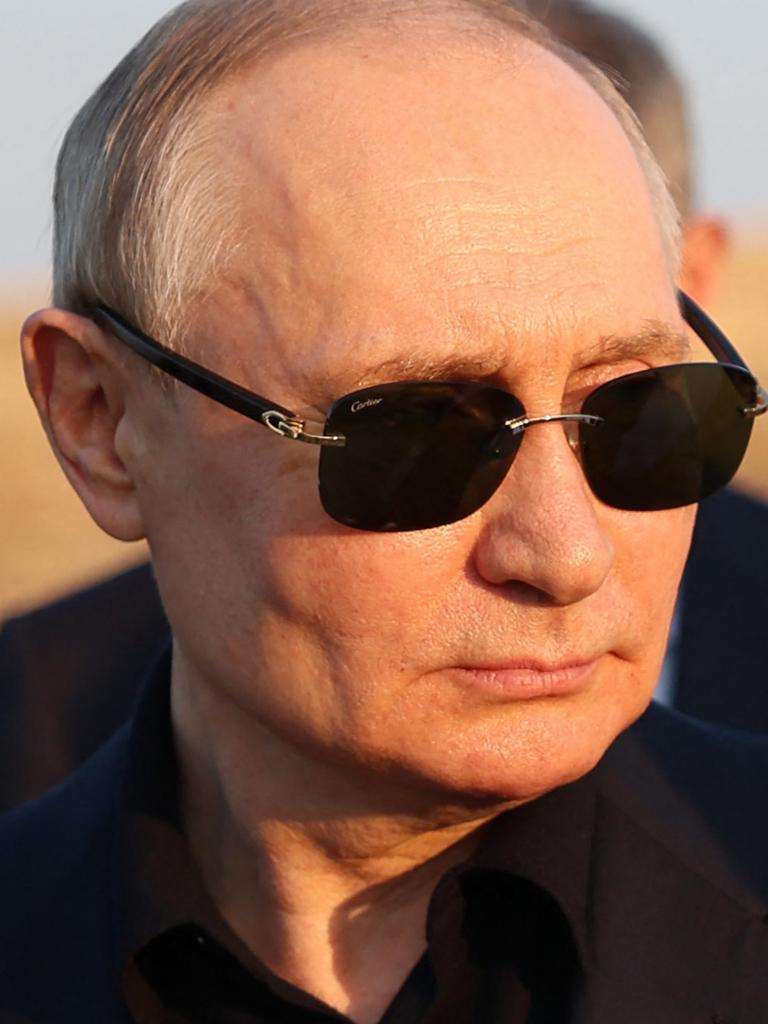
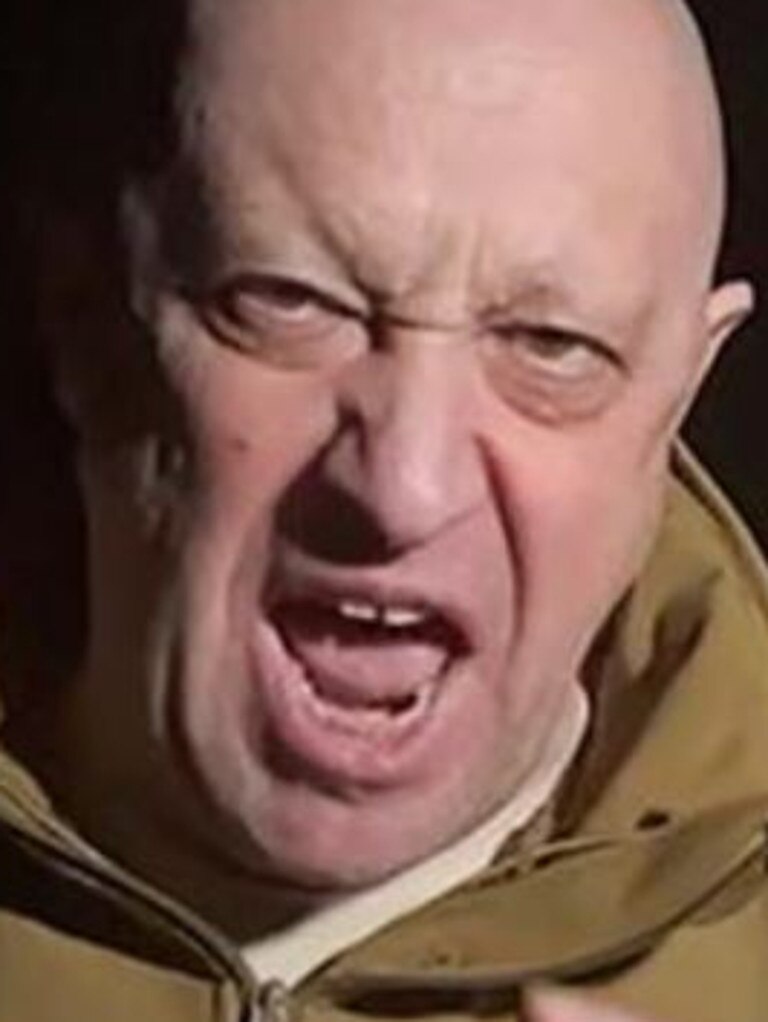
“Either way, Prigozhin's alleged death will not eradicate dissatisfaction with Russia’s military performance in Ukraine from Wagner troops loyal to Prigozhin, as well as from Russian-nationalist groups who supported the mutiny. Prigozhin's supposed death is likely to further aggravate these sentiments of growing frustration.”
Clash of kings
The June Wagner putsch was all over within 24 hours.
Prigozhin insisted it had all been about President Vladimir Putin’s henchmen, not Putin himself.
He accused the “scumbags” Shoigu and Chief of the General Staff Valery Gerasimov of wilful incompetence.
“In the first days of the war, Shoigu killed thousands of Russian soldiers. He destroyed the most combat-ready part of the army. And this was a very small part of the army as it had been led by fools for many years, and those who were any good had left,” Prigozhin accused.
He accused “dipshit” Russian generals of sabotaging Wagner’s chances of succeeding.
“The Ukrainian army is crushing through the Russian army. We’re getting washed in blood. Nobody’s providing reserves, and there’s no control. But since there’s no control and no military successes, the Defence Ministry’s leadership is deliberately deceiving the president.”
That qualifying remark may not have saved him.
“Prigozhin, as much as any of the other characters around the president, is a product of the system and an embodiment of the concept of naked force,” said Kolesnikov.
He was given about $2 billion in Russian taxpayer funds to establish the Wagner mercenary force as Putin’s private – and deniable – army.
“This is what Putin’s Russia has been reduced to: a feudal system in which the supreme leader hands out pieces of property to his vassals to manage, or delegates functions to them at his subjects’ expense,” Kolesnikov added.
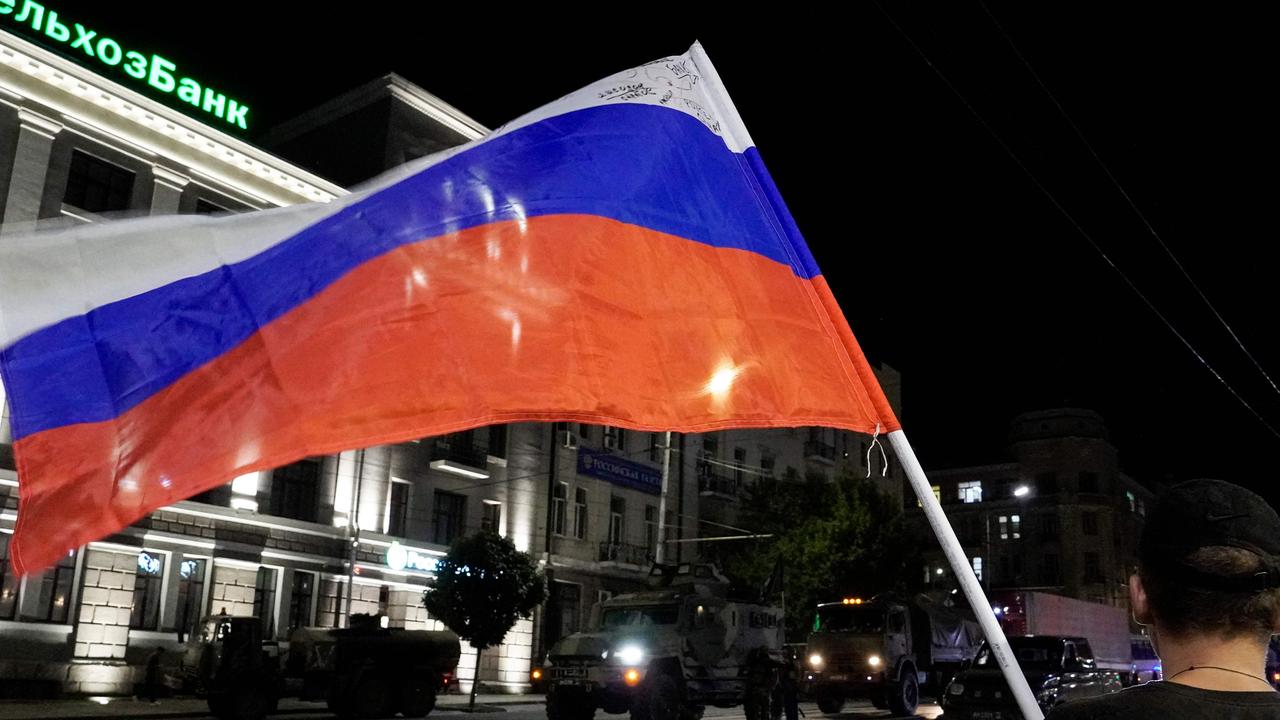
“Prigozhin was valuable because he was a supplier of expendable human material … His goal was not to displace Putin but to be recognised as an equal partner of the president. But he made a false start and overplayed his hand.”
A storm of swords
A “friendly fire” incident, where Russian military aircraft bombed a Wagner emplacement, appears to have sparked the revolt.
It was the physical embodiment of a battle between Prigozhin and the Kremlin over who had supreme control over the army of freed convicts.
“The evil that the country’s military leadership perpetuates must be stopped,” he declared via Telegram.
“They disregard the lives of soldiers … Therefore, those who have killed our guys today and have taken the lives of tens, many tens of thousands of Russian soldiers will be punished.”
Prigozhin declared his troops had turned their backs on Ukraine and “crossed state borders in all areas”.
They had seized the military command centre in the city of Rostov-on-Don. They were marching on Moscow – and would “destroy anything standing in their way”.
Then, “Putin’s chef” baulked.
“We came out on June 23 to the March of Justice. In a day, we drove to nearly 200km from Moscow. In this time, we did not spill a single drop of blood of our fighters …” he said.
“That’s why, understanding the responsibility for spilling Russian blood on one of the sides, we are turning back our convoys and going back to field camps according to the plan.”
But he had spilt Russian blood. Two attack helicopters, four transport helicopters and an IL-22 transport aircraft had been shot down in the drive on Moscow.
And Putin’s aura of invincible infallibility had been destroyed.
“The rebellion exposed not only Putin’s management failures, the negligence that embittered and inflamed Prigozhin, but also how the state had shot itself in the foot,” said Stanovaya. “After all, Wagner has grown into a fighting force with tens of thousands of soldiers only thanks to billions of dollars in state funding.”
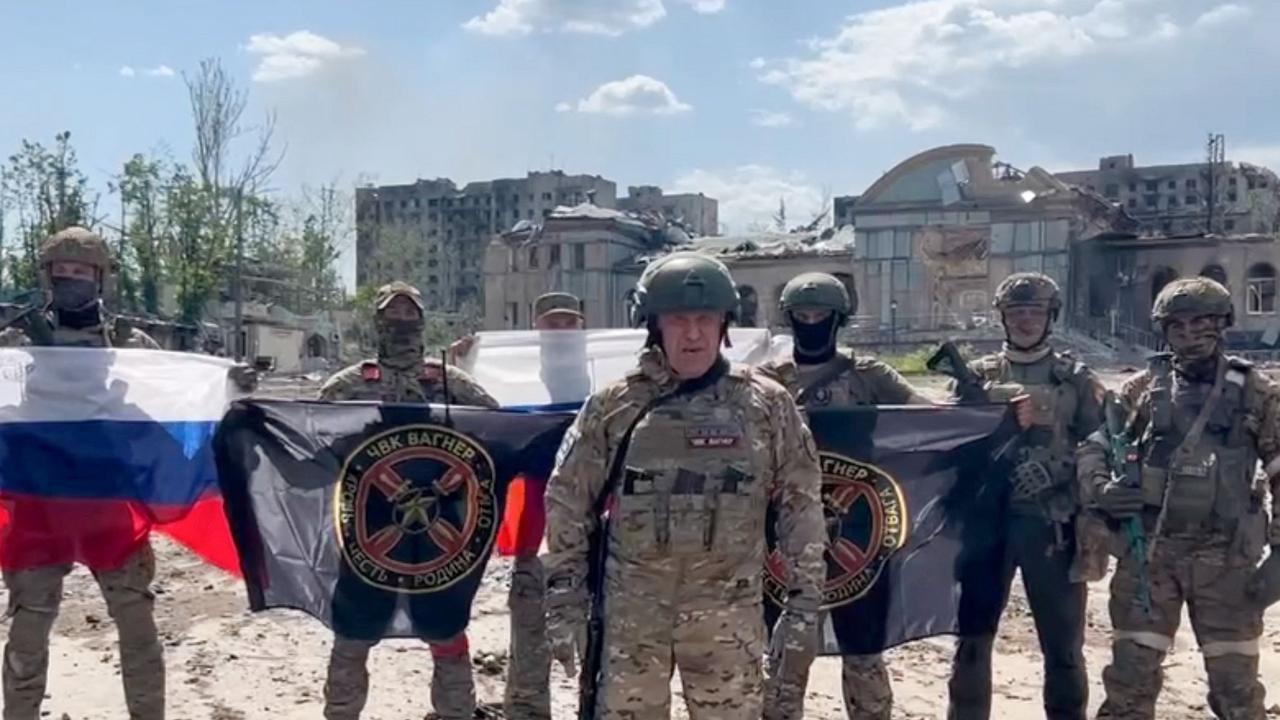
Putin has to be seen to be solving “the problem”.
“Everyone knows what they do with ‘traitors’, Bellingcat investigator Christo Grozev said last month.
“In six months, Prigozhin will either be dead, or there will be a second coup.”
A feast for crows
“Despite its swift resolution, many in Moscow struggle to understand Putin’s handling of the crisis,” said Carnegie senior fellow Tatiana Stanovaya.
“On the one hand, the Russian president has publicly and ruthlessly condemned Prigozhin as a ‘traitor’, but on the other hand, he has allowed the mercenary leader to move freely within the country and even hosted him in the Kremlin for negotiations.”
This was a sign, she said, of Putin’s precarious position.
“The war has begun to change Russia, and profound internal shifts are likely underway – in Putin’s regime, in the elites’ perception of Putin, and in the public’s attitude toward the war,” she continued.
“Threats to the Kremlin, such as the Wagner rebellion and the revelations of the government’s weakness, will not necessarily lead the public to turn against Putin and bring down the regime.
“Instead, these developments are transforming Russia into a far less cohesive entity, one rife with internal contradictions and conflicts, more volatile and lacking predictability.”
Putin places great stock in predictability.
On top of the list is the fate of those who contradict him.
Wagner PMC headquarters in St Petersburg tonight. pic.twitter.com/Ejoa77Bg3z
— Anton Gerashchenko (@Gerashchenko_en) August 23, 2023
Former KGB agent Alexander Litvinenko died in London three weeks after drinking a cup of tea laced with radioactive polonium-20.
Russian journalist Anna Politkovskaya accused Putin of turning Russia into a police state. She was shot at point-blank range inside a lift outside her flat.
Former deputy prime minister Boris Nemtsov was shot four times in the back after accusing Putin of being in the pay of oligarchs.
And, in recent months, the death toll has escalated to keep Russian billionaires, politicians, military commanders, high-profile personalities – and the general public – in line.
But that message isn’t always striking home.
“Ordinary Russians were struck by Prigozhin's brazen confrontation with the Defence Ministry and his complaints that his troops were desperately short of ammunition,” added Stanovaya. “The public perceived him as a crusader against corruption and someone who dared to challenge the spoiled elites.”
Dr Genauer agreed the damage to Putin’s reputation runs deeper than Prigozhin's death can repair.
“Whilst this incident may raise the stakes for Russian elites considering contending with Putin for power, nevertheless, Putin does not emerge from the event with a renewed perception of strength, but rather as a leader presiding over a fractured political and security landscape where he is responding to unfolding events, rather than setting the agenda.”
Jamie Seidel is a freelance writer | @JamieSeidel




